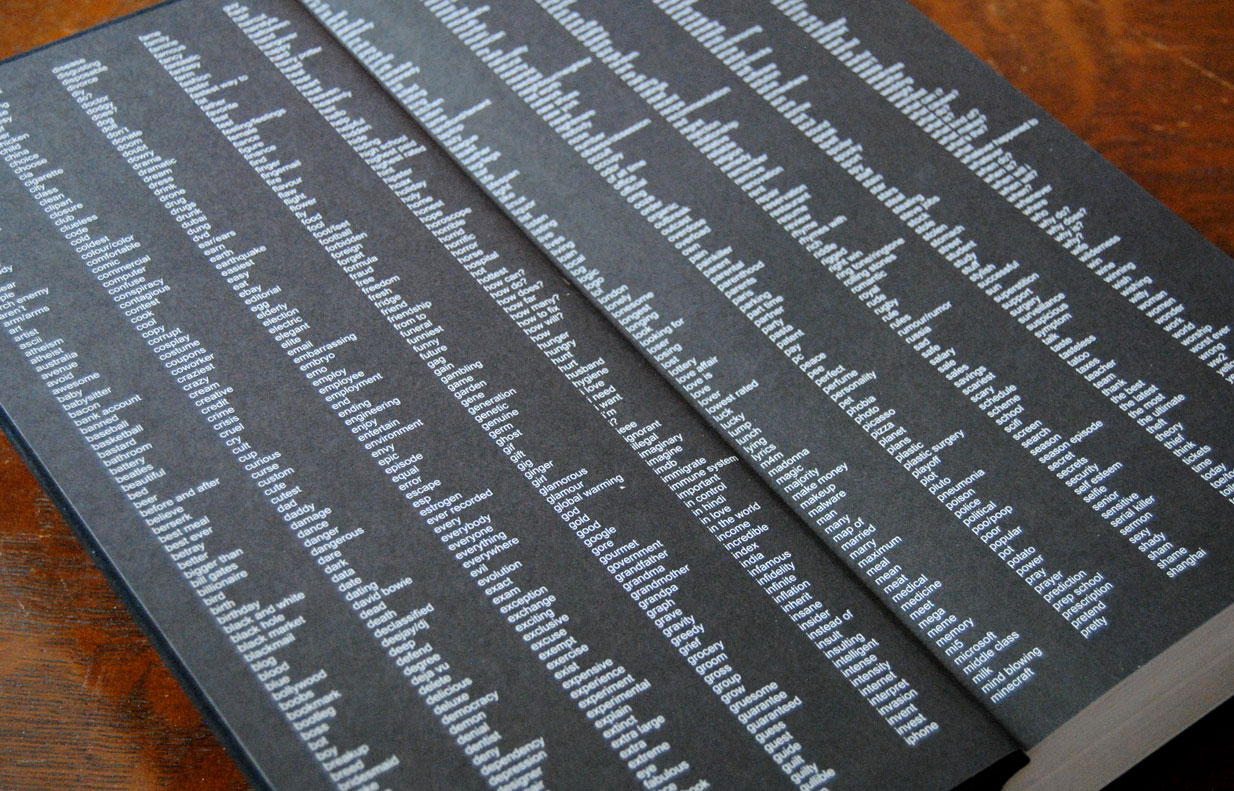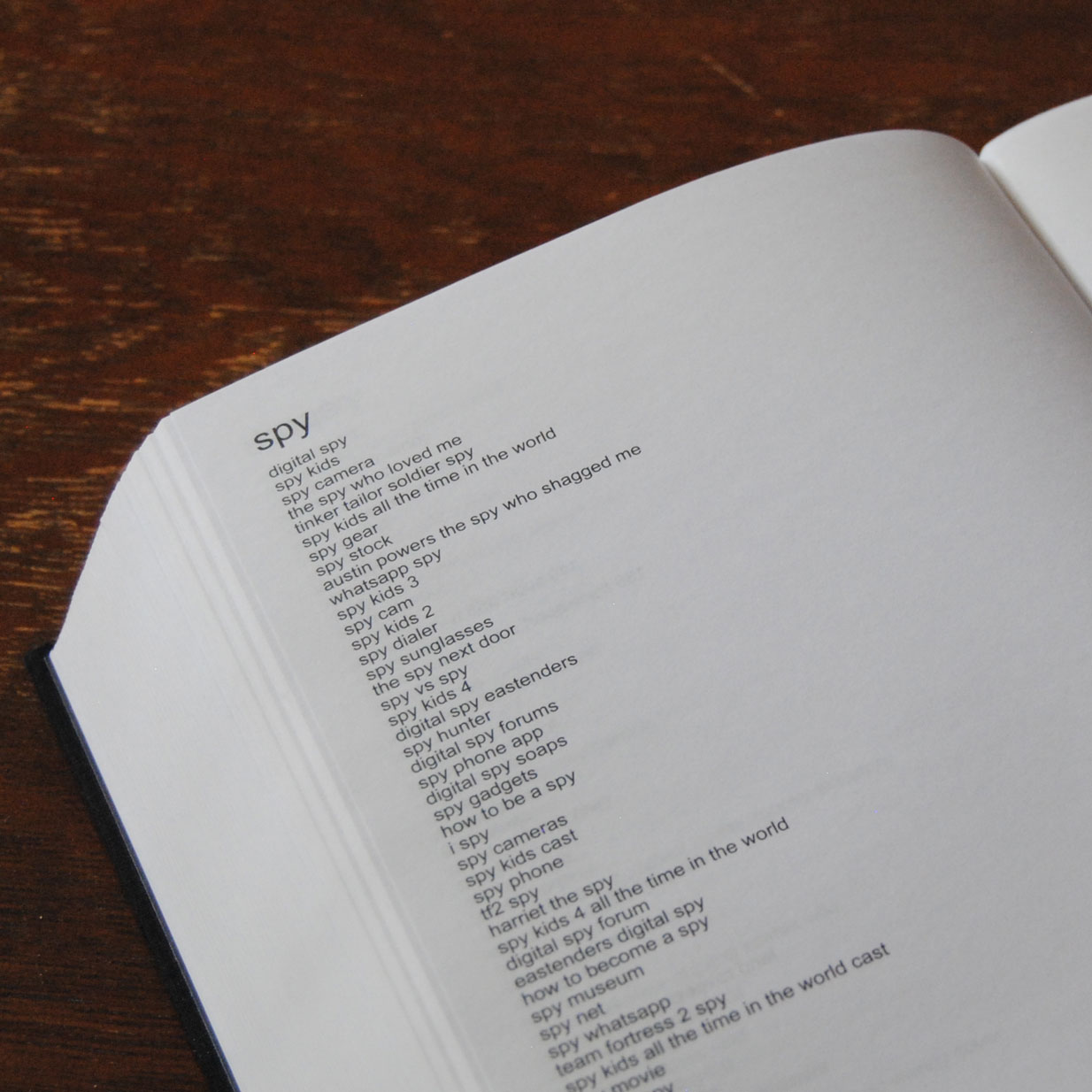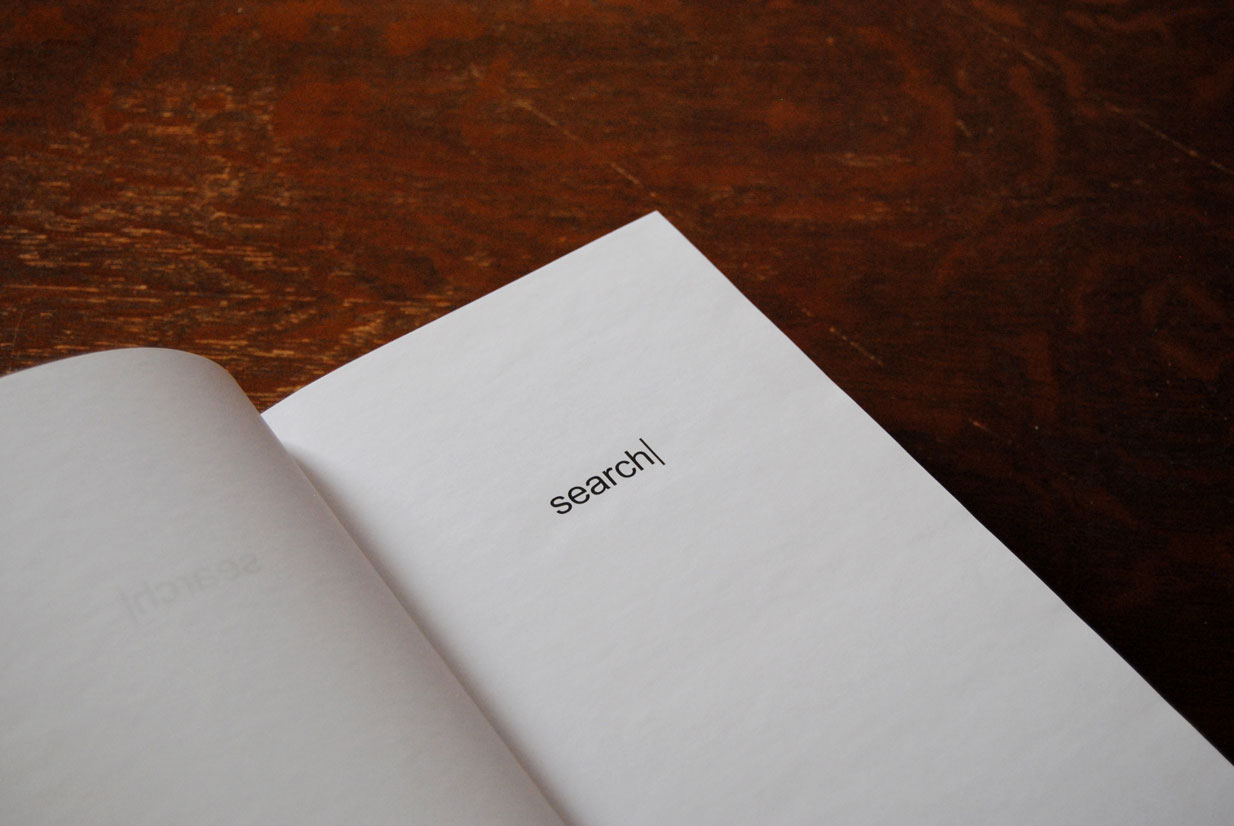
search| is a project from douglas coupland that came from his artist’s residency at google’s cultures institute lab in paris in the spring of 2015.
it is a deep reflective dive into who we are as a species based on our search data, and there is a lot of search data.
as coupland writes in the introduction, “the data in this book came from all global searches in the month of february, 2015, many billions of queries in total. the only results kept were those repeated at least fifty times on a single day. the data was then narrowed down to english language. also, all google searches are done in lower case.”
this is a book i’ll be turning to every now and again. it’s not just a snapshot of that time, but it also provides a look at how we use, over-use, or expect too much from the internet as an entity – and, by extension, the most popular search engine that navigates that entity for us.
and, no, this review wasn’t written poorly. because “all google searches are done in lower case,” this is how i will write this post.
there are too many entries to cover on a whole, but i did want to share a few observations from my first few perusals of this massive data cluster of a thousand keywords:
anxiety
as someone who lives with anxiety, it was one of the first search results that i really dove into, and it is exactly what you’d expect. people asking about correlations between anxiety and depression, people asking how to deal with anxiety, and more. but the outlier and the thing i find most intriguing is “anxiety quotes” because one of the patterns that i found in this book is that we as a species love googling for quotes. while i know i’ve done it, i do so rarely enough that i can’t remember the last time i looked up a quote or even what it might have been about.

parenthood
this search result’s data was taken over by two things, the nbc television series parenthood and planned parenthood. the series finale was at the end of january 2015, so perhaps search results go up when a show ends? the other side is just planned parenthood and a location. perhaps without the show ending, this wouldn’t have even made the cut for the book, but searches were up at that particular moment in time, and here it is.
recipe
the sweet tooth is not the sovereign of any one nation. these are global results and most of the words associated with recipe searches are for dessert. i don’t know why this was a surprise to me, but somehow it felt unexpected.
sign
sign has results that appear to be an indictment on how people use google. the entire list is basically searches for various online sign-in portals. literally, aside from stop sign, peace sign, dollar sign, euro sign, at sign, hollywood sign, pound sign, and star sign, it is a list of relevant services for 2015; hotmail, facebook, yahoo, skype, twitter, ebay, you get the picture.

zombie
zombie is one of my favorite results in the book. it is so seemingly balanced with music-related searches paired with rob, white, or cranberries, but it also encompasses movies and games. before you ask, of course, it includes “how to survive a zombie apocalypse,” because why wouldn’t it?
in conclusion, it may be best to go back to coupland’s introduction to this book. “we’re cavalier about google’s astonishing ocular presence, but imagine telling someone from twenty years ago, ‘in two decades you’ll be able to know the answer to just about any question anywhere, anytime, free, in less than one-tenth of a second.’ you’d be very impressed, right? yet here we are, taking it all for granted. we are an ungrateful species.”
indeed, we are ungrateful. we have this powerful tool and reference in google and other search engines to navigate our modern library of alexandria in the internet, and what do we do? we want dessert recipes and help getting into websites for which we already have credentials. does this make us more ungrateful or, perhaps, just wasteful?

Read the Secret File of technical information and quotes from search|.